In the vibrant cultural epicenter of Barcelona, Verdi cinemas are preparing to welcome the second edition of the Catalan Buddhist Film Festival, a unique event that intertwines cinematographic art with the rich culture and spirituality of Buddhism. From October 23 to 27, 2024, this festival, promoted by Catalan Coordinator of Buddhist Entitats (CCEB) and the Dharma-Gaia Foundation (FDG), will present a selection of carefully chosen films that invite viewers to explore and reflect on the essential principles and values of Buddhism, such as compassion, non-violence, and the interdependence of all beings. Specialists in the underlying themes of the films will contribute to the reflection by opening a dialogue with the public.
Backed by the prestigious Buddhist Film Foundation (BFF), the festival aspires to consolidate itself as a biennial reference, not only in Catalonia, but also internationally. This year, the festival's leadership lies with an all-female team, led by co-directors Montse Castellà, representing the CCEB, and Fina Íñiguez, representing the FDG. Along with them, Nuria Fenollar and Mònica Pagés Correcher complete a management team whose dedication and vision have transformed this initiative into a platform that celebrates cultural diversity and promotes gender equality.
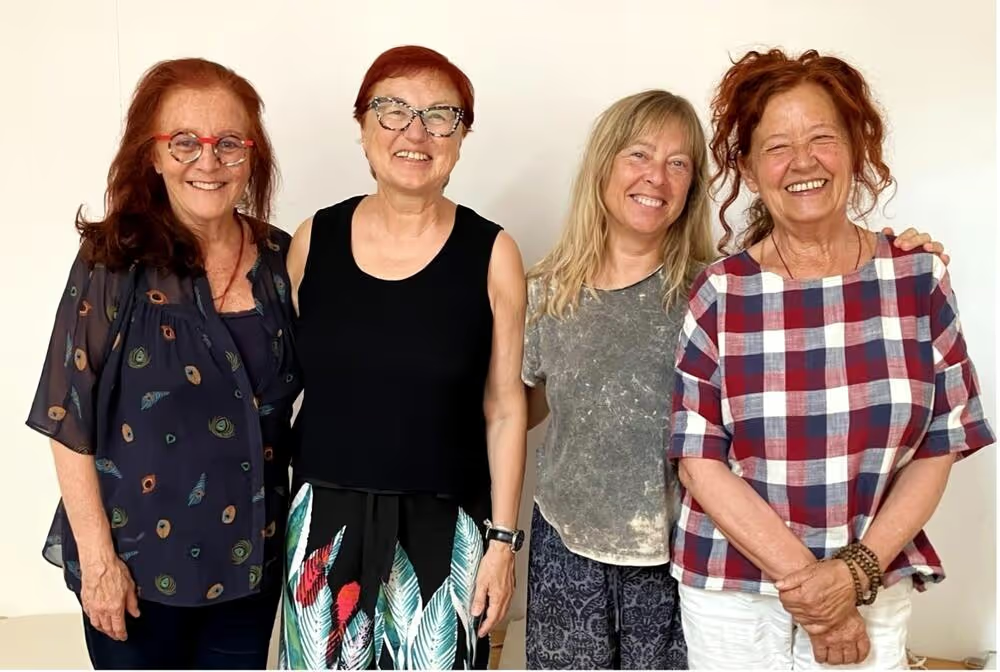
In this interview, we delve into the inspiration and purpose behind the creation of a festival dedicated to cinema with themes related to the dharma, that is, the teachings and values of Buddhism. They share their perspectives on how cinema can be a powerful vehicle for spreading Buddhism and connecting with diverse audiences, as well as the challenges and opportunities presented by this second edition. Through their voices, we explore the transformative potential of cinema to open new avenues of dialogue and intercultural understanding in the contemporary world.
RAYMOND LAM: Why was it necessary to create a film festival that could show productions related to Dharma?
MUNTSA CASTELLÀ OLIVÉ: “Necessary” may not be the word, but we do consider cinematographic language a “skilful medium” to spread Buddhism and bring it closer to a wide audience, promoting the encounter between culture and spirituality. Two entities, the Dharma-Gaia Foundation and the Catalan Coordinator of Buddhist Entities, joined forces to carry out, in 2022, this pioneering initiative not only in Catalonia, but in Spain. The success of the first edition, with tickets sold out in all sessions, confirmed that we were on the right track. Our goal is to expand the reach of the Festival and expand knowledge of Buddhism in this second edition that we will celebrate next October, again in Barcelona. This is a small-format festival, not competitive, with a small team, but with the ambition to grow in each edition. The FCBC was born with the vocation of being a biennial and with the motivation to, in addition to awakening interest in Buddhism, to offer films with themes that connect with today. In this edition, topics such as mental health, the role of weapons, sorority, neuroscience, and reflections on life and death from a Buddhist perspective are the main axes. We also strive to maintain consistency with Buddhist values beyond those implied in the projections, committing ourselves, among other things, to respect gender equality and the environment.
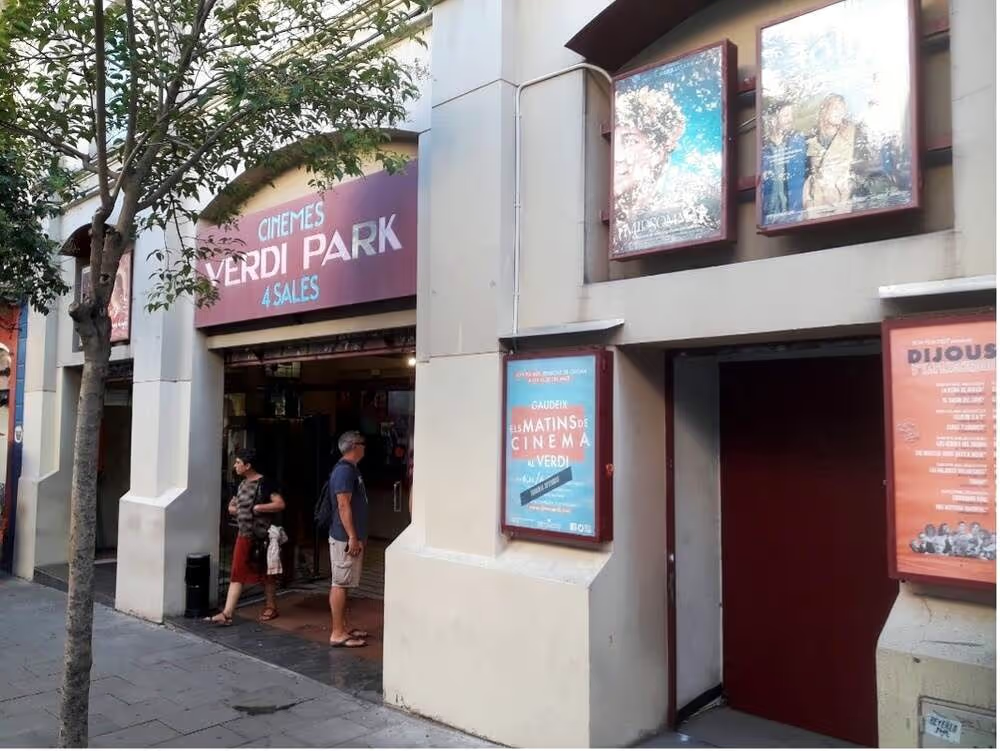
RL: Thematically, do most movies that focus on Buddhism focus on Tibet and Vajrayāna?
FINA ÍÑIGUEZ ABAD: The themes of the films at our Festival have not been pre-established. Our selection process begins with the advice of Gaetano Kazuo Maida, executive director of the Buddhist Film Foundation-BFF, who, since 2003, has been organizing international film festivals in different cities around the world. Gaetano presents the works following certain criteria, such as showing the diversity of the Buddhist traditions most present in our country, ensuring gender equity, either in direction or in the leading role, and, as far as possible, selecting films of recent production. Tibetan Buddhism is the most present in our Festival because it produces the most works and, in addition, it has the most representatives, not only in Catalonia but throughout Spain. In addition, we believe that what is relevant to our Festival are the topics covered; for this reason, we have selected films that address themes that cross all traditions, such as reincarnation, bardo, suffering and monastic life.
RL: How can the projected films present Dharma in a more culturally relevant way for Spanish speakers?
NURIA FENOLLAR: Most Buddhist films have not been made in our country; that's why we offer original versions subtitled in Catalan, which is Catalonia's own language, and also in Spanish. This brings distant realities closer to our local audience and also beyond our borders, thanks to the important dissemination of our Festival through the digital magazine Buddhistdoor in Spanish. Films show situations that are often remote from our culture, and we believe that's where their appeal lies. We invite the public, especially non-Buddhists, to take a 'journey' to cultures, philosophies and knowledge to which they normally have no or biased access. Above all, we invite the public to delve into the topics discussed through the talks that, after the screenings, specialists in the subjects and representatives of the different Buddhist traditions hold with the public. This is our strong point as a festival.
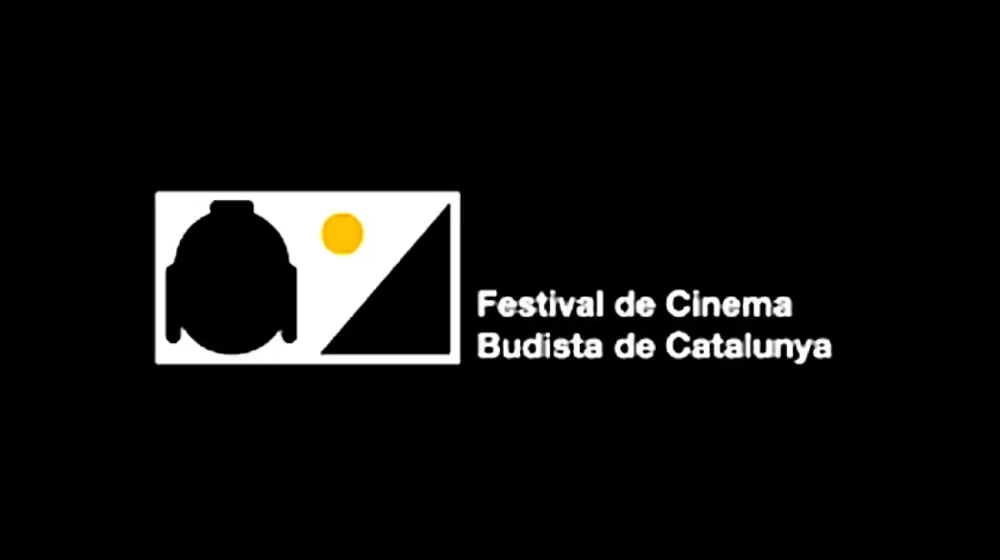
RL: How have recent economic and production trends in Spanish cinema affected submissions and the jury selection process?
MÒNICA PAGÉS CORRICHER: Our selection of films has nothing to do with the economic trends of Spanish film production; our approach is different, as we have said before. In general, we did not find recent Spanish-produced films that fit our format. However, fortunately, in this edition we can count on the production of a beautiful film by a young Spanish director.
RL: As film artists and lovers/experts, how do your own Dharma beliefs/practices influence and inform your vision of how movies can educate, edify and entertain?
MPC: We are not film experts or artists; we have different backgrounds, references and practices, but we share a wide range of views on issues that we consider significant and believe can provide elements for reflection. Buddhism offers analysis tools that help with self-knowledge and, by extension, knowledge of others and of the world. If, in addition, these tools can be offered in the form of art, culture and entertainment, it all adds up
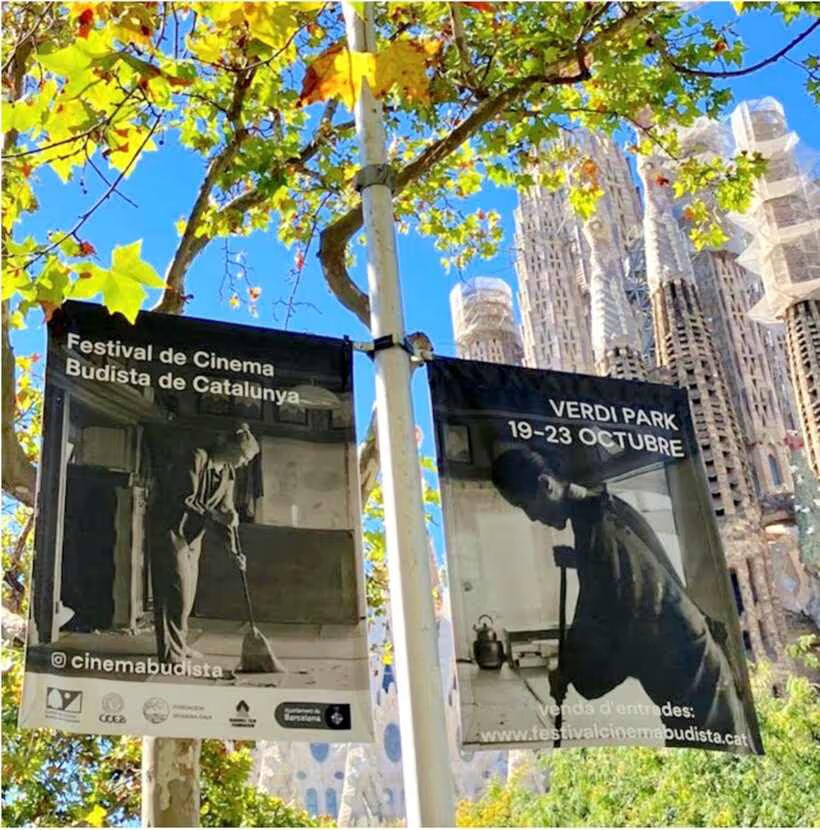
See more:
First Buddhist Film Festival in Catalonia
Catalan Buddhist Film Festival (Facebook)
Catalan Buddhist Film Festival (Wikipedia)
Catalan Coordinator of Buddhist Entitats
Related articles in from BDE
Interview with Gaetano Kazuo Maida, Executive Director of the Buddhist Film Foundation
Catalan Buddhist Film Festival (FCBC)
Special Edition: “Buddhism and Cinema”
Editorial introduction to the special edition: “Buddhism and Cinema”
Related articles in BDG
Buddhism in Barcelona: The First Buddhist Film Festival in Catalonia
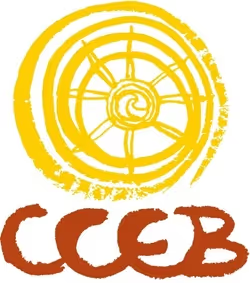
Catalan Coordinator of Buddhist Entitats (CCEB)
It is a non-profit association that was founded in 2007 to coordinate and create synergies between Buddhist entities and centers in Catalonia and the Balearic Islands with the desire to present and represent Buddhism in the society in which, for forty years, it has been taking root. Some thirty members belong to the CCEB, from different traditions: Zen, Tibetan, Chinese, Korean, Vietnamese, and others.

Dharma-Gaia Foundation (FDG)
It is a private, non-profit cultural foundation committed to the environment, which promotes, among other activities, university academic courses, conferences and seminars, exhibitions, production of videos and documentaries, publication or co-publication of books on Buddhism. It organizes courses and academic publications on Buddhism in collaboration with the Rovira i Virgili University, is a collaborator of the magazine Buddhistdoor in Spanish, and develops projects in Spain and Latin America.

Buddhist Film Foundation (BFF)
It is the organizing entity of the International Buddhist Film Festival, based in Oakland, California, USA, and which since 2003 has been present in different corners of the world, such as Los Angeles, Washington DC, London, Mexico City, Amsterdam, Singapore, Thailand, among others. In the future, the organizers of BFF intend to bring their international festival to Barcelona.










